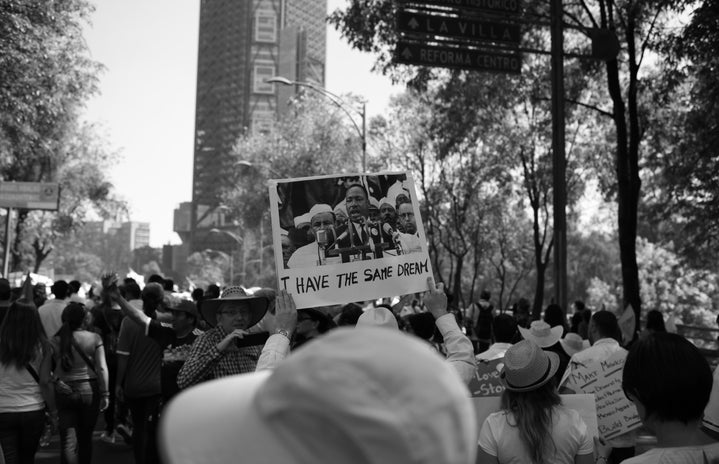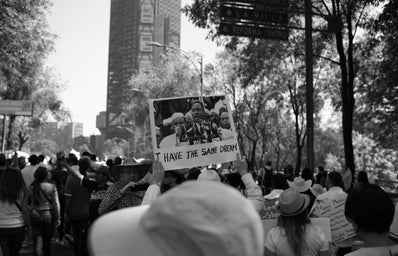On August 28, 1963, on the steps of the Lincoln Memorial, Martin Luther King Jr. delivered his “I Have a Dream” speech with a conviction for the future of the United States to be a country that will “rise from the dark and desolate valley of segregation to the sunlit path of racial justice” where all ages, races, and backgrounds could work together on equal grounds to build a better world.
The third Monday of January each year dedicates a day to celebrate Martin Luther King Jr. Day, and thus honor the life and legacy of the powerful activist whose message ignited a passion within others to create change.
To those who continue to advocate for and envision the dream that King had — a hope for a nation that loves instead of kills — I would like to share with you a few poems that have touched my heart and make me remember how far we’ve come to where we are today, as well as how much more we can do.
Paul Lawrence Dunbar “We Wear the Mask”
Dunbar’s well-known poem discusses the experience of oppression for a community that must constantly wear a “mask” that hides their true feelings in order to survive. The “mask” is a way of safety and a performance of composure in the face of violence and racism.
Maya Angelou “The Mask”
As a continuation of Dunbar’s poem, Angelou’s poem pours out an emotional account of the immense suffering that underlies the “mask,” that she writes, “kept [her] race alive.” I first heard this poem when listening to her telling of Dunbar’s poem for one of my English classes on Black poets, which I recommend listening to. In such a strong woman, I could see the pain on her face and hear the anguish in her voice as she read these powerful poems.
Maya Angelou “Still I Rise”
This is one of Angelou’s well-known poems that tell of her determination and strength despite those who may try to bring her and her race down. No matter the history or the color of her skin, she will not be hindered. Instead, she will rise, because it is not what you look like that matters: it’s your actions.
Richard Blanco “One Today”
Serving as the U.S. inaugural poet in 2013 for Barack Obama’s second inauguration, this poem envisions America as a country that is aware of its history, diversity, flaws, and potentials. He provides an optimistic view of the future, with hope for change to create a nation that is “one.”
King saw in all of us how our lives, destinies, and freedoms are intertwined with one another. His perseverance led to the passing of the Civil Rights Act of 1964, thus ending discrimination in the workforce and public areas on the “basis of race, color, religion, sex, or national origin.” His actions ensured the protection of an African American’s right to vote through the Voting Rights Act of 1965. No longer would Black people have to constantly “wear the mask” as Dunbar had said because they were finally beginning to be seen as a fleshed-out “person” with individual aspirations rather than an insignificant “other” destined for slave labor under white supremacy.
I hope these poems will allow you to reflect and remember the service that has been given for our future. King’s words remain relevant in our present day, continuing to inspire activism against the deeply embedded remnants of racism and injustice to reach equality for all. As Angelou stated, we must “rise” even when the world is in opposition to our will. Just as America rallied together to become “one” in the past, we can do so again — as Blanco wrote — in order to progress as a country.
With the assurance of a bright future, King declared in his speech, “We will be able to hew out the mountain of despair a stone of hope… we will be able to transform the jangling discords of our nation into a beautiful symphony of brotherhood… to struggle together, to go to jail together, to stand up for freedom together…” It is because when we are together, we can create the greatest amount of change.


